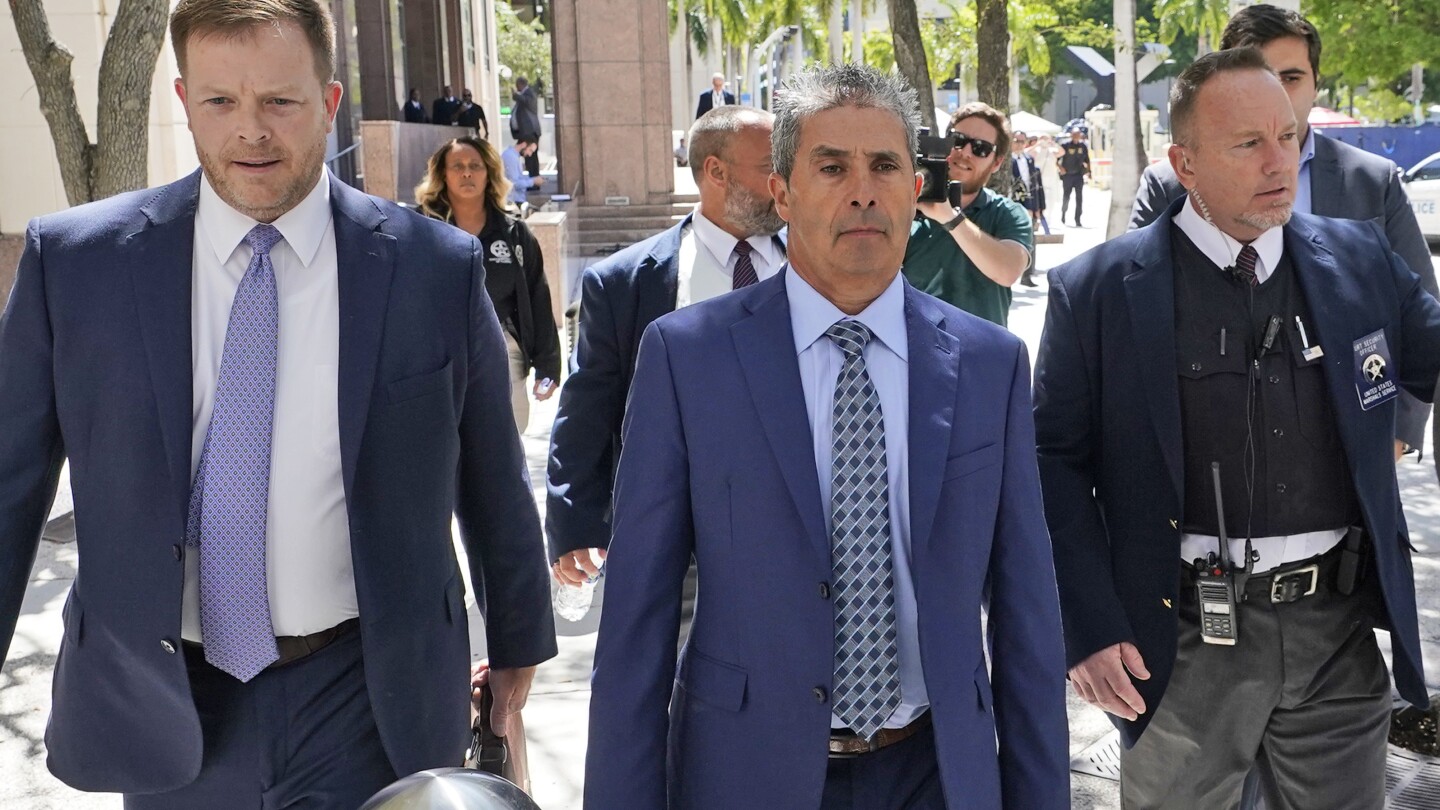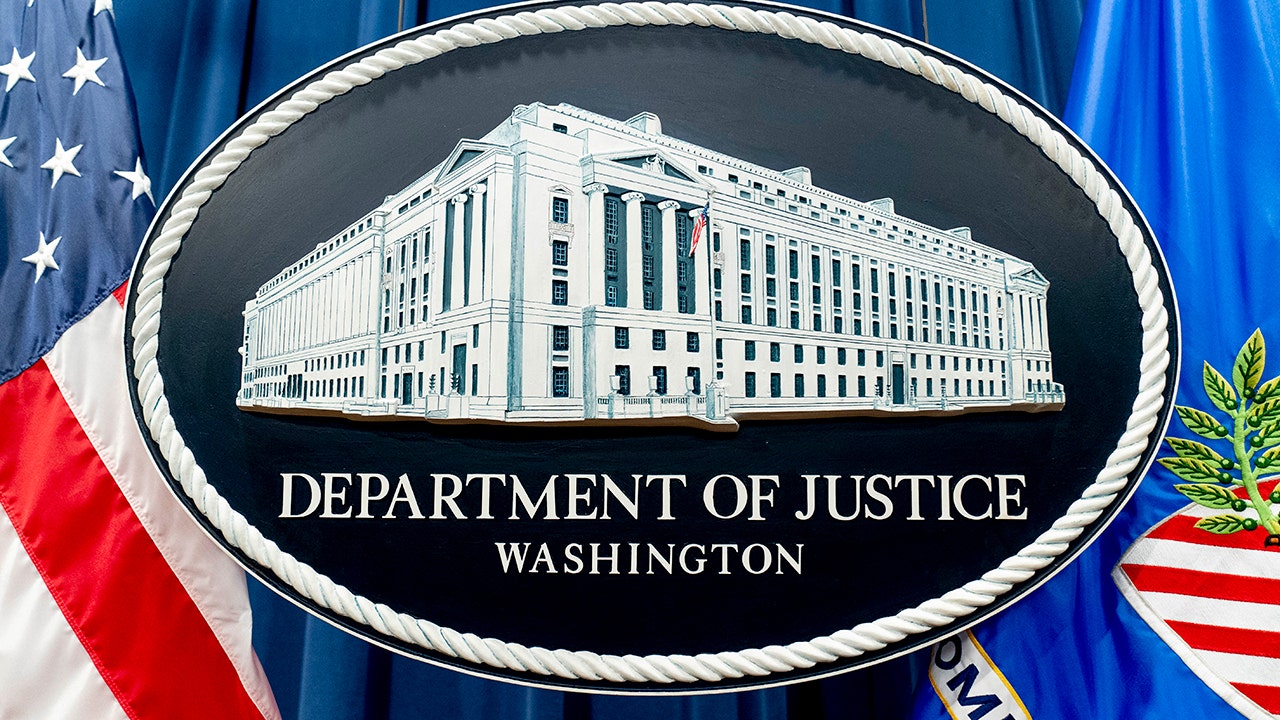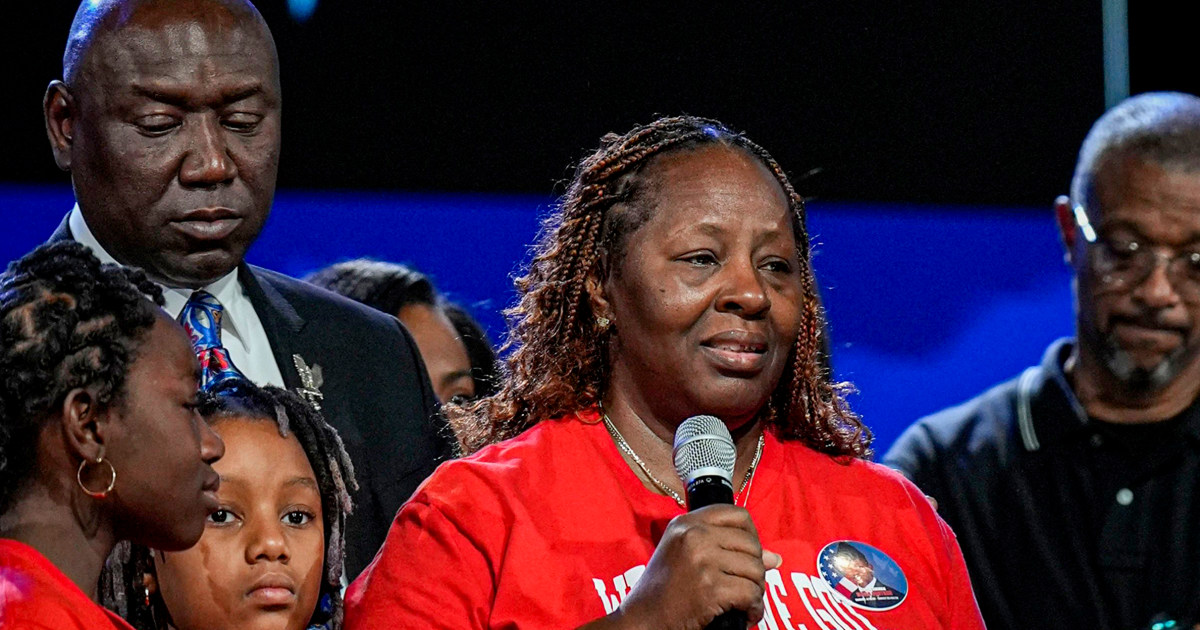World
Mar-a-Lago property manager is the latest in line of Trump staffers ensnared in legal turmoil

NEW YORK (AP) — A longtime Mar-a-Lago staffer who spent years fetching luxury cars for wealthy club members is the latest person to be ensnared in former President Donald Trump ‘s ballooning legal troubles.
Carlos De Oliveira appeared in court Monday to face charges connected to what prosecutors allege was a scheme directed by the former president and current GOP frontrunner to try to erase security footage after it was subpoenaed by a grand jury. De Oliveira is also charged with lying to investigators, according to a new indictment unveiled last week.
De Oliveira is now the second little-known Trump employee charged in connection to his alleged hoarding of classified documents at his Palm Beach, Florida, club. His case highlights the collateral damage of Trump’s mounting legal woes, as he leaves a trail of co-conspirators and allies accused of lying or committing other crimes on his behalf. Some of those finding themselves under legal scrutiny depend on Trump for their livelihood — and now to pay their mounting legal bills.
Trump has adamantly denied any wrongdoing and accused President Joe Biden’s Justice Department of targeting him to damage his campaign.
“They’re trying to intimidate people so that people go out and make up lies about me. Because I did nothing wrong,” he told conservative radio host John Fredericks last week. “But these are two wonderful employees. They’ve been with me for a long time and they’re great people. And they want to destroy their lives.”
The White House has repeatedly denied any suggestion that Biden has sought to influence investigations related to Trump.
De Oliveira’s appearance Monday marked not only the public’s first glimpse of Trump’s co-defendant, but an introduction for many who frequent the club. Unlike Nauta, who is a constant presence by Trump’s side, even current and former Trump staffers and allies said after the indictment was unsealed they were unfamiliar with De Oliveira and didn’t recognize his name. Several asked whether a reporter might have a photograph to help jog their memories.
Mar-a-Lago is staffed by more than 150 workers, from full-time staff to seasonal employees, and many were among those called to appear before the grand jury, according to people familiar with the appearances, who, like others, spoke on condition of anonymity to discuss the case. They are just some of the dozens of staff, aides, public officials and attorneys who have been caught up in overlapping investigations into the documents as well as Trump’s efforts to overturn the results of the 2020 election.
De Oliveira, according to the indictment and public records, has worked at Mar-a-Lago for more than 20 years, beginning as a valet who earned just $12,000 in 2010. He was promoted to the club’s property manager in January 2022.
One club member who requested anonymity to talk about staff described De Oliveira as a friendly face who ran the valet parking operation. The club member said it was hard to imagine Trump having any kind of lengthy conversations with someone in his position, as the indictment alleges. Others, however, noted Trump has a tendency to talk to everyone, including staff, and pays very close attention to his properties, pointing out issues like chipped paint, and directing maintenance workers to quickly attend to them.
Trump also has a longtime pattern of elevating low-level staffers, building intense loyalty in the process. They pointed to people like Dan Scavino, a former golf caddy who became one of Trump’s most trusted aides, serving as a White House deputy chief of staff for communications and one of the few people entrusted to issue tweets under his name.
While those who have been elevated by Trump are among his most loyal defenders, others who have turned against the former president described a pattern of young staffers and low-level employees becoming enthralled with Trump and the trappings of power — first at the White House, with its rides aboard Air Force One, and now at Mar-a-Lago where dues-paying members burst into applause every time he enters a room. Trump, they say, has a knack for making people feel like they are special, and, from some, earns blind loyalty in return.
Stephanie Grisham, a onetime press secretary and aide to the former first lady, who is now a vocal Trump critic, said she was initially enamored by it all.
“I used to be in awe of that very thing,” she said. “He makes you feel important.”
De Oliveira and his attorney, John Irving, didn’t respond to multiple requests for comment and nobody answered the door at the home he rents in a working-class suburban community close to the highway between Jupiter and West Palm Beach. In 2012, records show, he filed for bankruptcy.
“The Justice Department has unfortunately decided to bring these charges against Mr. De Oliveira,” Irving said after the court appearance Monday. “They don’t stop to put their money where their mouth is. I am looking forward to seeing what discovery is.”
De Oliveira joins a long line of former Trump associates, employees and supporters who have faced potential jail time or served time behind bars. They include Walt Nauta, the Navy valet who fetched Trump’s Diet Cokes at the White House before joining him as a personal aide, and was charged last month alongside Trump for his role in the alleged scheme. Both he and Trump have pleaded not guilty to the charges.
Allen Weisselberg, a Trump Organization executive, served three months in jail after pleading guilty to receiving $1.7 million in unreported job perks; and Michael Cohen, Trump’s longtime lawyer and fixer, who spent more than 13 months behind bars over payouts he helped arrange during the 2016 presidential race to keep women from going public about alleged sexual encounters with Trump. Trump has since been charged in connection to the payments.
Others have recently been implicated. In Michigan last month, 16 Republicans who acted as fake electors to help Trump overturn the results of the 2020, were charged with felonies. And more than 1,000 people so far have been charged with federal crimes in connection with storming the Capitol on Jan. 6, 2001, driven by Trump’s like of a stolen election.
The document unveiled last week alleges that, the day after the Trump organization was informed of a draft grand jury subpoena asking for security camera footage from Mar-a-Lago, Trump called De Oliveira, and they spoke for approximately 24 minutes. A day later, Nauta — who was scheduled to travel with Trump to Illinois — changed his arrangements and instead made plans to travel to Palm Beach.
At the club, Nauta met with De Oliveira and the two “went to the security guard booth where surveillance video is displayed on monitors, walked with a flashlight through the tunnel where the Storage Room was located, and observed and pointed out surveillance cameras.”
Two days later, De Oliveira allegedly asked “Trump Employee 4” — a man identified as information technology worker Yuscil Taveras — how long security footage was saved on the club’s server and said “the boss” wanted the server deleted. When the employee responded that he would not know how to do that and didn’t have the right to, De Oliveira allegedly “insisted to TRUMP Employee 4 that ‘the boss’ wanted the server deleted and asked, what are we going to do?’”
It remains unclear whether the men succeeded in preventing investigators from accessing any footage. Prosecutors, in their interviews, had asked about potential gaps or missing footage but the indictments make ample reference to movement caught on tape and Trump has insisted nothing was deleted.
Another notable scene unfolded two weeks after the FBI’s Mar-a-Lago search. The indictment alleges that Nauta called another Trump employee and said words to the effect of, “someone just wants to make sure Carlos is good.” The employee allegedly responded that De Oliveira was loyal and would not do anything to affect his relationship with the former president — and later confirmed that in a Signal chat. Later that day, Trump allegedly called De Oliveira and told the property manager that he would get him an attorney.
Trump’s political operation has paid tens of millions of dollars on legal fees for associates, including De Oliveira, and recently created a new legal defense fund to help cover costs.
“In order to combat these heinous actions by Joe Biden’s cronies and to protect these innocent people from financial ruin and prevent their lives from being completely destroyed, a new legal defense fund will help pay for their legal fees to ensure they have representation against unlawful harassment,” said Trump spokesman Steven Cheung.
Grisham said the help made it harder to turn on Trump.
“If he’s looking out into the world right now, he’s not seeing that anyone whose turned on Trump has been real successful. And he’s getting his lawyers paid for … so I think he traps you in that regard too… You’re trapped financially, you’re trapped emotionally and you dig yourself into a hole you cannot get out of, thinking: ‘What is the upside for me to tell the truth?’… At the end of the day you have to feed yourself and your family.”
___ Associated Press writers Adriana Gomez Licon in Miami and Palm Beach Gardens, Florida, and Eric Tucker in Washington contributed to this report.

World
The CW’s Top Exec on Walker’s Uncertain Fate, Potential All American ‘Reboot’ and Superman & Lois’ ‘F–king Awesome’ Sendoff

ad
World
Justice Dept. makes arrests in North Korean identity theft scheme involving thousands of IT workers

The Justice Department announced Thursday multiple arrests in a series of complex stolen identity theft cases that officials say are part of a wide-ranging scheme that generates enormous proceeds for the North Korean government, including for its weapons program.
The conspiracy involves thousands of North Korean information technology workers who prosecutors say are dispatched by the government to live abroad and who rely on the stolen identities of Americans to obtain remote employment at U.S.-based Fortune 500 companies, jobs that give them access to sensitive corporate data and lucrative paychecks. The companies did not realize the workers were overseas.
NORTH KOREA’S MENACING NUCLEAR THREAT IS TOO DANGEROUS TO IGNORE. US MUST LEAD BEFORE TIME RUNS OUT
The fraud scheme is a way for heavily sanctioned North Korea, which is cut off from the U.S. financial system, to take advantage of a “toxic brew” of converging factors, including a high-tech labor shortage in the U.S. and the proliferation of remote telework, Marshall Miller, the Justice Department’s principal associate deputy attorney general, said in an interview.
The seal for the Justice Department is photographed in Washington, Nov. 18, 2022. The Justice Department has announced three arrests in a complex stolen identity scheme that officials say generates enormous proceeds for the North Korean government, including for its weapons program. (AP Photo/Andrew Harnik)
The Justice Department says the cases are part of a broader strategy to not only prosecute individuals who enable the fraud but also to build partnerships with other countries and to warn private-sector companies of the need to be vigilant — and not duped — about the actual identities of the people they’re hiring.
FBI and Justice Department officials launched an initiative in March centered on the fraud scheme and last year announced the seizure of more than a dozen website domains used by North Korean IT workers.
“More and more often, compliance programs at American companies and organizations are on the front lines of protecting our national security,” Miller said. “Corporate compliance and national security are now intertwined like never before.”
The Justice Department said in court documents in one case that more than 300 companies — including a high-end retail chain and a “premier Silicon Valley technology company” — have been affected and that more than $6.8 million in revenue has been generated for the workers, who are based outside of the U.S., including in China and Russia.
Those arrested include an Arizona woman, Christina Marie Chapman, who prosecutors say facilitated the scheme by helping the workers obtain and validate stolen identities, receiving and hosting laptops from U.S. companies who thought they were sending the devices to legitimate employees and helping the workers connect remotely to companies.
According to the indictment, Chapman ran more than one “laptop farm” where U.S. companies sent computers and paychecks to IT workers they did not realize were overseas.
At Chapman’s laptop farms, she allegedly connected overseas IT workers who logged in remotely to company networks so it appeared the logins were coming from the United States. She also is alleged to have received paychecks for the overseas IT workers at her home, forging the beneficiaries’ signatures for transfer abroad and enriching herself by charging monthly fees.
Other defendants include a Ukrainian man, Oleksandr Didenko, who prosecutors say created fake accounts at job search platforms that he then sold to overseas workers who went on to apply for jobs at U.S. companies. He was was arrested in Poland last week, and the Justice Department said it had seized his company’s online domain.
A Vietnamese national, Minh Phuong Vong, was arrested in Maryland on charges of fraudulently obtaining a job at a U.S. company that was actually performed by remote workers who posed as him and were based overseas.
It was not immediately clear if any of the three had lawyers.
Separately, the State Department said it was offering a reward for information about certain North Korean IT workers who officials say were assisted by Chapman.
And the FBI, which conducted the investigations, issued a public service announcement that warned companies about the scheme, encouraging them to implement identity verification standards through the hiring process and to educate human resources staff and hiring managers about the threat.
World
Taiwan grapples with divisive history as new president prepares for power

Taipei, Taiwan – Even as Taiwan prepares for the inauguration of its eighth president next week, it continues to struggle over the legacy of the island’s first president, Chiang Kai-shek.
To some, Chiang was the “generalissimo” who liberated the Taiwanese from the Japanese colonisers. To many others, he was the oppressor-in-chief who declared martial law and ushered in the period of White Terror that would last until 1992.
For decades, these duelling narratives have divided Taiwan’s society and a recent push for transitional justice only seems to have deepened the fault lines. Now, the division is raising concern about whether it might affect Taiwan’s ability to mount a unified defence against China, which has become increasingly assertive in its claim over the self-ruled island.
“There is a concern when push comes to shove if the civilians work well with the military to defend Taiwan,” said historian Dominic Meng-Hsuan Yang of the University of Missouri in the United States.
On February 28, 1947, Chiang’s newly-arrived Kuomintang (KMT) troops suppressed an uprising by Taiwan natives, killing as many as 28,000 people in what became known as the February 28 Incident. In the four-decade-long martial law era that followed, thousands more perished.
This traumatic history met its official reckoning in 2018, when the Taiwan government set up its Transitional Justice Commission modelled after truth and reconciliation initiatives in Africa, Latin America and North America to redress historical human rights abuses and other atrocities.
When the commission concluded in May 2022, however, advocates and observers said they had seen little truth and hardly any reconciliation.
Almost from the first days of the commission, the meting-out of transitional justice became politicised across the blue-versus-green demarcation that has long defined Taiwan’s sociopolitical landscape, with blue representing KMT supporters and green the ruling Democratic Progressive Party (DPP).
A recently published anthology entitled Ethics of Historical Memory: From Transitional Justice to Overcoming the Past explains how the way Taiwanese remember the past shapes how they think about transitional justice. And as that recollection is determined by which camp they support, each champions their own version of Taiwan’s history.
“That’s why transitional justice seems so stagnant now,” explained Jimmy Chia-Shin Hsu, research professor at the legal research institute Academia Sinica who contributed to and edited the book. “Whatever truth it uncovers would be mired in the blue-green narrative.”
A non-partisan view, Hsu said, is to credit the DPP with codifying transitional justice and Lee Teng-hui, the first democratically elected KMT president, with breaking the taboo on broaching the February 28 Incident.
The past shaping the future
In February, Betty Wei attended the commemoration for the February 28 incident for the first time and listened intently to the oral history collected from the survivors. Wei, 30, said she wanted to learn more about what happened because her secondary school textbook had brushed over what many consider a watershed event in a few cryptic lines, and many of her contemporaries showed little interest.
“In recent years the voices pushing for transitional justice have grown muted,” Wei told Al Jazeera. “A lot of people in my generation think the scores are for previous generations to settle.”

In Taiwan, the past is never past, and rather it is fodder for new fights.
As the DPP gears up for an unprecedented third consecutive term, the unfinished business of removing the island’s remaining statues of Chiang has resurfaced as the latest front in what Yang, the historian, described to Al Jazeera as “this memory war”.
More than half of the initial 1,500 monuments have been taken down over the past two years, with the remaining statues mostly on military installations.
Yang argues that is because the top brass rose through the ranks under martial law and many still regard Chiang as their leader, warts and all. For them, toppling the statues would be an attack on their history.
The statues embody “the historical legacy the military wants to keep alive,” Yang said. “That’s a source of tension between the military and the DPP government.”
On the eve of William Lai Ching-te taking his oath as the island’s next president, Taiwanese will for the first time mark the “White Terror Memorial Day” on May 19, the day when martial law was declared in 1949.
While it is clear Taiwanese have promised to never forget, whom and how to forgive has become far murkier.
As the former chairman of the Taiwan Association for Truth and Reconciliation, the first NGO advocating for the cause, Cheng-Yi Huang lauded the government’s move to take over the KMT’s private archives in recent years but lamented there had been too little truth-seeking so far.
For example, under the February 28 Incident Disposition and Compensation Act, Huang said many have chosen to stay silent about their complicity because only victims get compensation.
However, Taiwan’s tumultuous history means the line between victim and victimiser is rarely clear-cut.

By digging into military archives, Yang has shed light on how Chinese were kidnapped and pressed into service by the KMT in the last years of the Chinese Civil War. Those who tried to flee were tortured and even murdered. And the native Taiwanese who rose up to resist KMT’s suppression were persecuted as communists.
“Under martial law, the military was seen as an arm of the dictatorship, but they were also victims of the dictator’s regime,” Yang told Al Jazeera. “The transitional justice movement has missed the opportunity to reconcile Taiwanese society with the military.”
To Hsu, Beijing’s belligerence demands Taiwanese of all stripes find a common cause.
“As we’re facing the threat from the Chinese Communist Party, it’s imperative that we unite in forging a collective future,” said Hsu, to a standing-room-only book talk during the Taipei International Book Exhibition in late February.
“And how we remember our past will shape this future of ours.”
-

 Politics1 week ago
Politics1 week agoBiden takes role as bystander on border and campus protests, surrenders the bully pulpit
-

 Politics1 week ago
Politics1 week ago'You need to stop': Gov. Noem lashes out during heated interview over book anecdote about killing dog
-

 Politics1 week ago
Politics1 week agoRFK Jr said a worm ate part of his brain and died in his head
-

 News1 week ago
News1 week agoMan, 75, confesses to killing wife in hospital because he couldn’t afford her care, court documents say
-

 World1 week ago
World1 week agoPentagon chief confirms US pause on weapons shipment to Israel
-

 Politics1 week ago
Politics1 week agoHere's what GOP rebels want from Johnson amid threats to oust him from speakership
-

 World1 week ago
World1 week agoPro-Palestine protests: How some universities reached deals with students
-

 World1 week ago
World1 week agoConvicted MEP's expense claims must be published: EU court


















